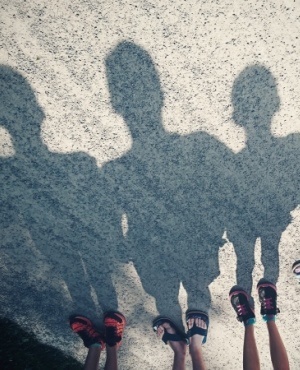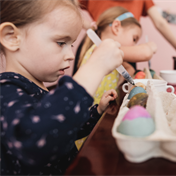
All children will learn to read, whether you read to them or not, says *Jana Malan, a mother of four.
The children of the *Malan family from Gauteng have never been to school.
Their parents practise “unschooling” with them, which is different to home-schooling. This means no lesson plan is followed and the kids aren’t registered to follow a specific curriculum – they learn through activities and only when they’re ready.
Jana and her husband, *Martyn, initially home-schooled their children because they lived far from reputable schools.
“There isn’t really a difference between going to school and being home-schooled. You still need to follow a lesson plan and there are fixed times when you need to sit down and learn,” Jana says.
With unschooling, this isn’t the case.
Their children, twins *Corrine and *Stephanie (20), *Hannes (18) and *Diederik (6), were all later “unschooled”. Two of the children have traditional school qualifications – Corrine and Stephanie have completed the equivalent of an American high school qualification, a General Educational Development (GED).
Hannes decided to get his private flying licence rather than focusing on passing matric. His licence will equip him to take responsibility in his father’s business, but he may well decide to complete his matric at a later stage.
Stephanie is crazy about horses and is following a career that involves the animals. She also plays the violin and composes music.
“Our children all play musical instruments and the twins have read almost a thousand books each,” Jana says.
Corrine plays the piano and is studying for a diploma in naturopathy. She also manages a music school.
“Our children played a lot, especially during their primary school years,” Jana says. “I just allowed them to play and be creative. We’re mammals and young mammals need to play.”
She says she and her husband believe all children learn to read and write and do maths when they’re ready.
“There are letters and numbers around them, so all children eventually learn to read and write.”
She says in the unschooling community children usually start reading by about age 12, but it can happen that they only start reading properly by the age of 16.
“It’s genetic to us to start reading,” Jana says. “The twins could read at age five, but our son only started reading at nine. With unschooling you don’t put undue pressure on a child.”
She says her kids spent their time in libraries, on outings, building chicken coops together and playing.
She admits socialisation was their biggest problem, but she and her husband made an effort to expose them to as many people as possible.
“We’re taught that we need maths, but why? We need to think of the bigger picture and make sure the kids are happy and content with themselves”.
Jana says her children have had time to experience things because they weren’t only busy with school.
“Corrine started working on her own collection of poems at 15,” she says. “Stephanie and a friend rode 1000km on horseback and plan to write a book about their experience.”
However, the South African Teachers’ Union (SATU) believes “unschooling” is incredibly irresponsible.
“To believe that children can teach themselves basic mathematics or literacy is similar to the analogy that if you believe strongly enough in the Tooth Fairy she’ll become real,” says Chris Klopper, executive head of SATU.
He says there are more than enough examples that prove such an approach doesn’t necessarily lead to children being properly “educated”.
“I can concede that if a child is particularly intelligent they’ll be able to function on a basic level, but to expect that to be a rule for any child – that idea simply doesn’t hold water.”
South Africans with a matric qualification have only 10% chance of finding work, Klopper says, while those with a tertiary qualification have an 85% chance.
“The chances of those without any formal qualification are even less – around 1%.”
Kloppers says parents who practise “unschooling” are breaking South Africa’s schooling law and could be fined or even sent to prison.
He adds that only a principal can pardon a child from school, and then only if it’s in the child’s best interests.
“It’s clear that the parents would also need to convince the Constitutional Court that it’s indeed in the child’s best interests to be unschooled, and that it’s not just convenient for the parents.”
*Names have been changed to protect the identity of the minor child.




 Publications
Publications
 Partners
Partners

















